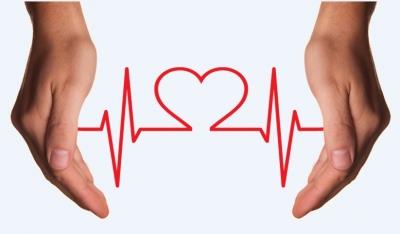
Maintain Ideal Heart Rate Key For Better Heart Health, Say Doctors
According to the experts, 60-100 beats per minute is the ideal rate, and maintaining it may boost heart health.
Heart attacks and strokes account for more than four out of every five deaths from CVD, and one-third of these deaths happen too soon among those under the age of 70.
"The ideal resting heart rate is between 60-100 beats per minute. Maintaining this range reduces the risk of heart disease and improves overall cardiovascular health. A rate consistently above or below this can indicate underlying issues like arrhythmia or heart disease," Dr Bagirath Raghuraman, Director of Heart Transplant. Narayana Health City, Bommasandra, Bengaluru, told IANS.
Tobacco use, hazardous alcohol consumption, poor diet, and physical inactivity are the main behavioural risk factors for heart disease and stroke. Air pollution is a significant environmental risk factor.
As far as India is concerned, one-fifth of all deaths worldwide from CVD occur in the country, especially among younger populations.
"The ideal resting heart rate is 60-100 beats per minute but in children, this can be more, till 125 beats per minute, especially in ones less than 18 years old," Dr Ashwani Mehta, Senior Consultant, Department of Cardiology, Sir Ganga Ram Hospital, told IANS.
"A lower resting heart rate, often seen in physically fit individuals, indicates efficient heart function and better cardiovascular health,” added Dr Nishith Chandra, Principal Director, Interventional Cardiology, Fortis Escorts Heart Institute, Okhla Road, New Delhi.
Chandra told IANS that "heart rates consistently above 100 bpm or below 60 bpm (in non-athletes) may signal underlying conditions like heart disease or thyroid issues, posing risks such as heart failure or arrhythmias".
Mehta said that heart rate can increase during fever, or if someone is very excited or having some stress. "A low heart rate can usually be benign but it can also be seen in patients having hypothyroidism," he said.
To maintain an ideal heart rate, the experts suggested regular exercise, eating a balanced diet, managing stress, and avoiding smoking, excessive caffeine, and alcohol.

Legal Disclaimer:
MENAFN provides the
information “as is” without warranty of any kind. We do not accept
any responsibility or liability for the accuracy, content, images,
videos, licenses, completeness, legality, or reliability of the information
contained in this article. If you have any complaints or copyright
issues related to this article, kindly contact the provider above.

















Comments
No comment